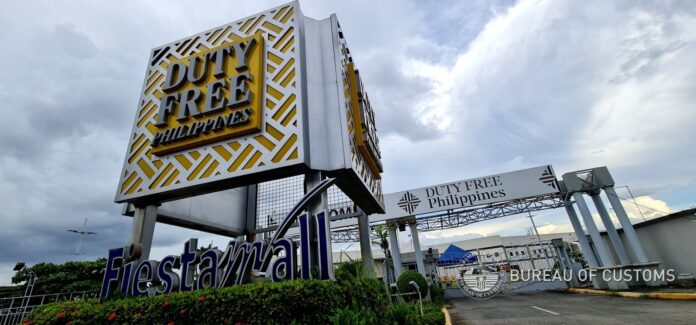-
The Bureau of Customs has amended rules on the establishment and operation of duty- and tax-free stores and warehouses operated by Duty Free Philippines Corp.
-
Customs Administrative Order No. 05-2021 amends certain provisions of CAO 11-2020, in particular providing a definition for stores and revising certain sections of CAO 11-2020 to reflect the change and include stores in the coverage
-
CAO 05-2021 includes an additional requirement for application to renew the authority to operate: an updated layout plan of DFPC stores
The Bureau of Customs (BOC) has amended rules on the establishment and operation of duty- and tax-free stores and warehouses operated by Duty Free Philippines Corp. (DFPC).
Customs Administrative Order (CAO) No. 05-2021 revises certain provisions of CAO 11-2020, in particular providing a definition for stores and revising certain sections of CAO 11-2020 to reflect the change and include stores in the coverage.
READ: BOC establishes rules for duty-free store, warehouse operations
CAO 11-2020, issued last year, governs the establishment and operation of duty- and tax-free stores and warehouses by DFPC. The DFPC is a corporate entity created under Republic Act No. 9593, or the Tourism Act of 2009, that has the exclusive franchise to operate duty- and tax-free shops that cater to the international travelers’ market.
Under CAO 05-2021, stores are defined as the physical establishment, sales, or display counters where goods sold by DFPC are exhibited for consumption by qualified individuals. DFPC stores are considered as extensions of DFPC’s main bonded warehouse irrespective of location, provided each branch or outlet should be covered by a separate and individual warehousing security.
With inclusion of the definition of stores, CAO 05-2021 also revises Sections 4.2 and 4.4 of CAO 11-2020 to reflect the amendment.
Section 4.2 now states that operation of all DFPC stores outside Metro Manila, including deployment of customs personnel, should be under the direct supervision and control of the concerned collection district.
Section 4.4 meanwhile, now states that duty-free warehouses and stores are considered extensions of DFPC’s main bonded warehouse irrespective of location, provided each branch or outlet should be covered by a separate and individual warehousing security.
CAO 05-2021 includes an additional requirement for the application to renew the authority to operate. This requirement is the updated layout plan of DFPC stores, namely, their physical sales, display or counters and provincial outlets including the location or vicinity map.
Sections 11, 15, 17, 22.3, and 24.1 were amended to include stores instead of “sales outlets, counters, stores, or shops.”
Under CAO 11-2020, BOC shall exercise supervision and control over DFPC-operated warehouses, which will be considered a special type of customs bonded warehouse (CBW) and an extension of customs premises where dutiable goods stored and introduced are concerned.
BOC, however, will not be liable for any loss or damage of the goods stored in any CBW. The safeguards and controls over DFPC-operated stores and warehouses under CAO 11-2020 were set up to prevent abuses of privileges, protect government revenue, and ensure these facilities comply with customs warehousing laws. – Roumina Pablo





